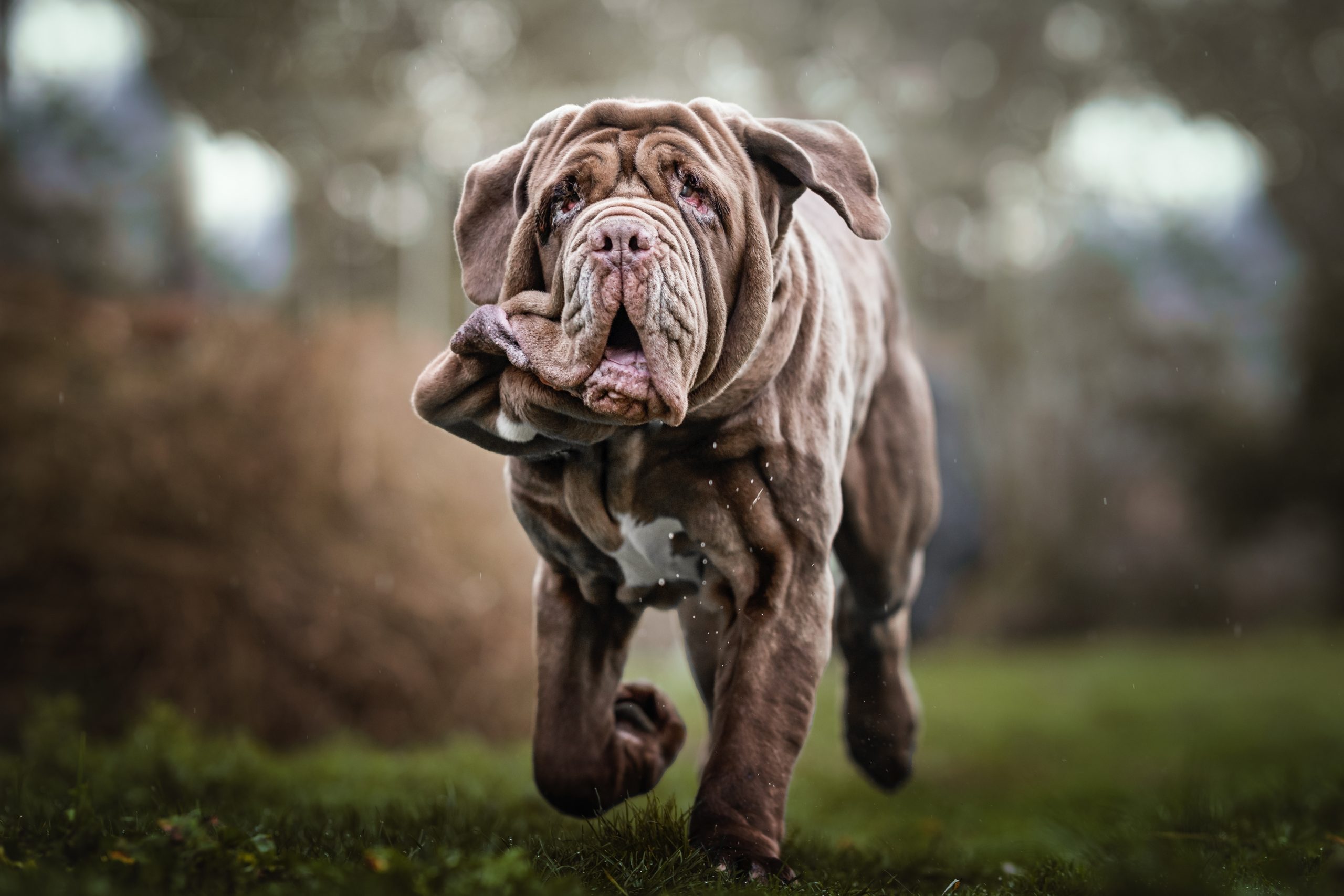Mastiffs, known for their imposing stature and dignified presence, are one of the oldest and most majestic dog breeds. Originating from ancient civilizations where they served as guard dogs, war dogs, and hunting companions, Mastiffs have a storied history that is as grand as their size. Despite their somewhat intimidating appearance, Mastiffs are known for their gentle temperament and undying loyalty to their families. These gentle giants are not only protective but also possess a quiet and watchful nature, making them excellent companions. Along with these admirable traits, Mastiffs exhibit several unusual habits that reflect their historical background and unique genetic makeup. Understanding these habits is essential for any Mastiff owner, as they can provide deeper insights into their behavior and help strengthen the bond between dog and owner. This article explores seven of the most unusual habits of Mastiffs, delving into the reasons behind each behavior and offering tips on how to manage these distinctive traits effectively.

1. Guarding Instincts
Mastiffs possess a strong guarding instinct, which is deeply embedded in their DNA from centuries of guarding estates and protecting their people. This instinct can manifest in a very subtle form of guarding where they position themselves between their owner and strangers or in doorways to monitor potential threats. While this behavior is beneficial for protection purposes, it’s important for owners to ensure it does not escalate into aggression. Proper socialization and training from an early age can help Mastiffs understand appropriate behavior, ensuring they remain calm and controlled in the presence of guests or in public settings.
2. “Lean On Me” Behavior
Mastiffs often exhibit a peculiar habit of leaning against their owners or sitting on their feet. This behavior is thought to be a sign of affection, seeking comfort, or simply a way to stay close to their people. While this can be endearing, it can also be overwhelming given their massive size. Teaching Mastiffs personal space boundaries from a young age can help manage this behavior, ensuring it remains affectionate without becoming cumbersome.
3. Drooling
One of the most notable physical habits of Mastiffs is their tendency to drool, especially after drinking water or when they smell food. Their large jowls and lips contribute to this characteristic drooling. While it’s a natural aspect of their physiology, managing it can involve keeping towels handy to wipe their mouths and maintaining a clean space around their eating and drinking areas to avoid messes in the home.
4. Snoring
Due to their large chest and airway structure, Mastiffs are prone to loud snoring, which can be quite pronounced when they sleep. This can be amusing but also disruptive, especially if they share a room with their owners. Ensuring they have a comfortable sleeping environment that encourages proper breathing can help minimize snoring. Regular veterinary check-ups can also ensure that there are no underlying health issues contributing to the snoring.
5. Low Energy Bursts
Despite their size, Mastiffs are not a high-energy breed. They often have bursts of energy followed by long periods of rest. During their active periods, they may engage in playful behavior such as short runs or playing with toys, which can be surprising to those who expect them to be lethargic. Encouraging regular, moderate exercise can help manage their energy levels and maintain their health.
6. Extreme Loyalty and Attachment
Mastiffs develop an intense attachment to their family, often becoming particularly bonded to one person whom they may regard as their primary caretaker. This can lead to protective behavior and anxiety when separated from their owner. Building confidence through socialization and independence training can help mitigate separation anxiety and ensure they feel secure even when alone.
7. Sensitivity to Weather
Mastiffs have a low tolerance for extreme temperatures, particularly heat, due to their heavy body mass and thick coat. They often seek out the coolest areas in a home during hot weather and may require air conditioning or fans to stay comfortable. Monitoring them for signs of heat stress and providing a comfortable, temperature-controlled environment is crucial for their well-being.
Mastiffs are a remarkable breed, combining physical power with a gentle and affectionate nature. Their unusual habits are a window into their historical and genetic heritage, offering both challenges and joys to their owners. By understanding and properly managing these habits, Mastiff owners can ensure their pets lead a happy, healthy, and fulfilling life, fully integrated into their families as beloved companions.
 Toledo, United States.
Toledo, United States.